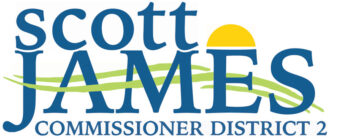You probably don’t know it, but on December 16 the Transportation Commission of Colorado will vote on a proposed rule change that will likely negatively impact your ability to travel throughout the state.
This change, under the authority of the Colorado Department of Transportation (CDOT), will shift funds from road improvements to efforts that attempt to reduce greenhouse gas emissions (GHG). While the intention behind this new rule sounds good, after all, we all want to live in a world with clean air, unintended consequences will come with it, including not only how we get to work but also where we go to play and even how we partake in the Colorado activities many of us enjoy such as skiing, hiking — even vacationing to a nearby mountain town.
In short, the rule will likely prioritize urban mass transit projects at the expense of non-urban projects. However, the proposed CDOT rule is formulated based on unrealistic assumptions including a 151 percent increase in transit service between 2019 and 2050. Not only is this level of growth unprecedented, but it also fails to consider the suitability of transit expansion in rural areas, reduced transit service in urban areas, and reduced transit ridership overall due to COVID. We also know our state has seen a major influx of remote workers due to COVID, meaning fewer Coloradans are battling the morning and evening commute, making transit expansion even less likely.
The proposed rule may also force transportation projects to be reprioritized based on their assumed GHG emissions rather than based on their ability to safely and effectively move people and goods throughout Colorado as this potential new rule change effectively converts CDOT’s mission to one of controlling air quality (a task already assigned to the Colorado Department of Public Health and Environment) rather than ensuring Coloradans have safe roads and bridges to get from point A to point B.
Finally, the proposed rule fails to consider the differences between urban and rural communities in Colorado. Restricting driving in rural areas is both unrealistic and unattainable. Rural communities, where our food and energy come from, simply aren’t built for mass transit systems. But beyond the urban/rural differences, the rule also fails to consider income disparities in all communities. Low-income Coloradans — who are less likely to own a vehicle — will also be disproportionately impacted because many of our state’s mass transit systems don’t connect.
For months, Weld County and other rural communities have urged CDOT and the state’s Transportation Commission to dismiss this rule. We can all agree we want cleaner air, but it is important that we implement the right policies to achieve that.
Weld County has provided CDOT with mass amounts of data and research on this subject, none of which CDOT or the Transportation Commission has apparently considered. In fact, Weld County and other rural communities have urged CDOT and the state’s Transportation Commission to dismiss this rule and consider other solutions.
Weld County continues to look at ways for the entire state to proactively reduce GHG. We are working with our friends at Colorado State University’s School of Agriculture to quantify existing ways and find new ways, backed by science, to reduce GHG. With this partnership and the many resources available, we can do what Coloradans do – find solutions to problems rather than pass over-reaching, big-government policies and mandates that severely curtail the freedoms of our citizens. One such solution we are researching and propose is to encourage the use of existing agricultural operations as “carbon sinks.” Another solution is to sequester carbon in existing pore space in the ground.
We urge the state’s Transportation Commission to dismiss the proposed rule and consider other solutions. We are eager to address greenhouse gas emissions; however, we will continue to fight against hastily developed punitive regulations rooted in fear-based greenhouse gas emotions.
–Commissioner Scott James
Weld County Commissioner Scott James is a fourth-generation Colorado native reared in LaSalle, Colorado; a community his great grandfather and great-great-grandfather helped found. Scott, his wife, Julie, and son, Jack, reside in Johnstown, Colorado, where he served for nearly 20-years as Chairman of the Planning and Zoning Commission, Member of Town Council, and Mayor.
This Op-Ed appeared in Colorado Politics on December 16, 2021.


